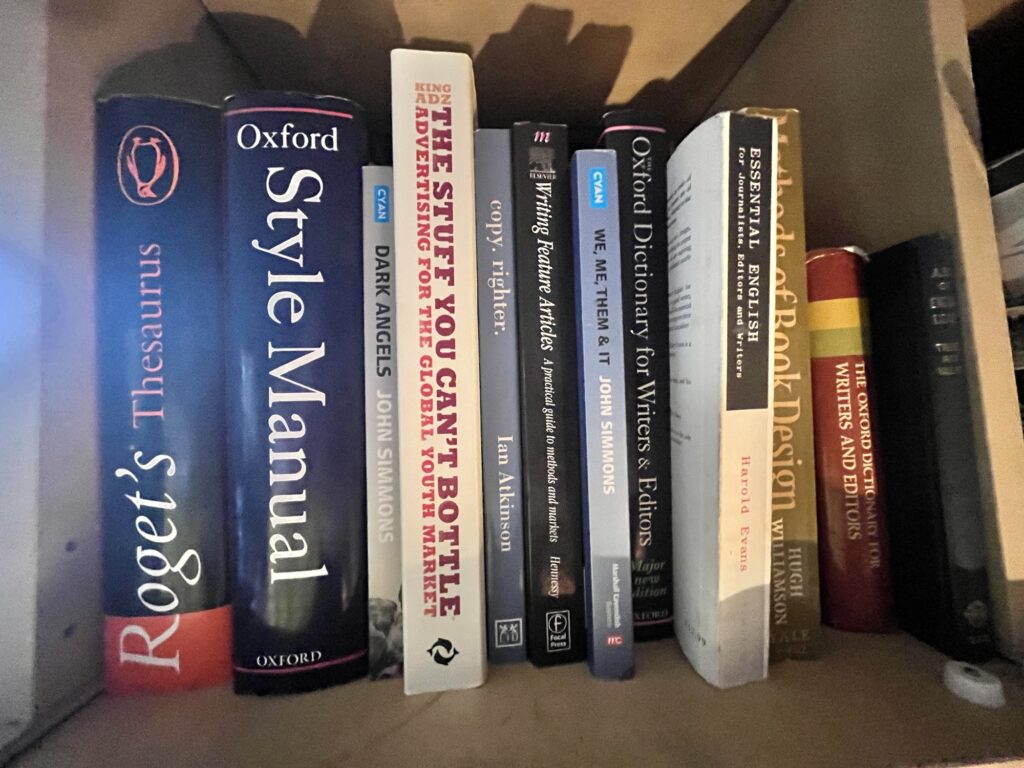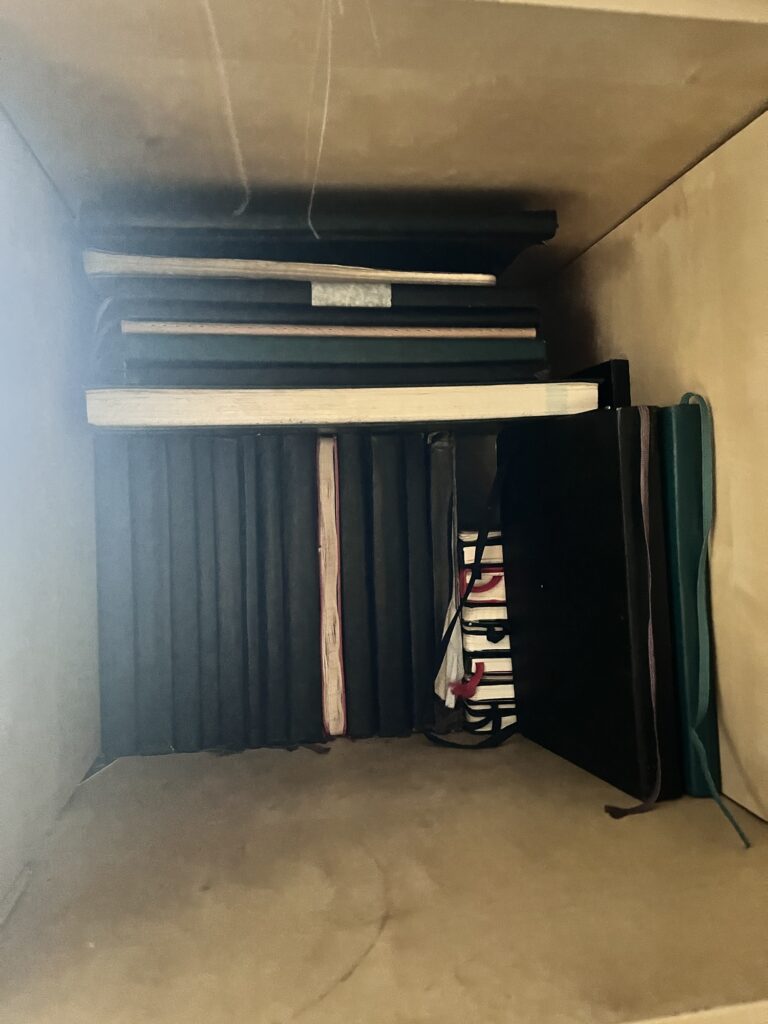
A shelf of reference books for work. There are others. Behind on the same shelf are 16+ years of notebooks with handwritten ideas, scribbles, steals, scripts, things that went nowhere, and others that worked.
Not for general reading, hence the positioning, most people wouldn’t understand what is written anyway.
Nonsense, gibberish, genius, jokes, facts, fiction, stories told, others untold: diary notes, observations, research, prompts, meeting notes. Someday someone may delve in or more likely at some stage they’ll be incinerated and ‘brent to brondeȝ and askez’. Torched, ignited, smouldering reduced to white ash in the fire pit that will blow away quietly with no fuss.

The other books are tools for writing, editing, proofing, shaping, for being precise and correct. Not in a starched knickers governess sense, but in the sense that if you choose a language, you should use it properly. Anybody do that anymore? Anyone?
There are many ‘content’ creators now, where did they come from. Self appointed experts, how many actually apply any rigour to what they produce? They don’t teach this stuff in CAM by the way. Holding a pen or wielding an Apple Pencil doesn’t mean you can write.
If you are working with copy written by others, what is your reference point for style, grammar, correct usage, and spelling? (Do you know the havoc that US spelling can spread, assisted and abetted by the likes of MS Word?).
On a shelf somewhere to keep you right is there a Roget, a Chicago Handbook, Harte’s rules, an MHRA handbook or another friend indeed?
It is a skill working with others’ work and your own. Have you the competency and confidence to face down a thick sheaf of A4 pages? Or the savoir-faire to take a page design, count the words per bloc and then write 50 words where only 50 is needed or 15 where 15 is required? Where ten words need to become seven? What about it?
Universities don’t teach this skill either, bar a few exceptions. You are expected to know how to write – a dangerous assumption. Once you graduate, you are set free into the world to write reports, business plans, proposals, product descriptions, and minutes of meetings. The results? Often gibberish.
AI will subtly make it worse because text editors will do the job for you, but they don’t know everything despite the hype.
When you’re shaving a word here and there, sculpting, shaping the text equivalent of base metal into, at best, fools gold, turd polishing, where do you turn?
What of the tyranny of the blank page? How are you on that front? They need a copy, and they need it quickly. What’s your next move?
What about production? Do you understand the process? What’s your Acrobat game like? Do you know your PDFs from your IDF? Can you strip out the text? What about diacritical marks? Garbled text?
Designers mask many woes, usually under a deadline and the last link in the chain they have to apply copy and imagery to their page design quickly.
There’s more to all of this and more than meets the eye. For now I can’t go on. This is what attempting to organise shelf does. Still, I can’t go on.
